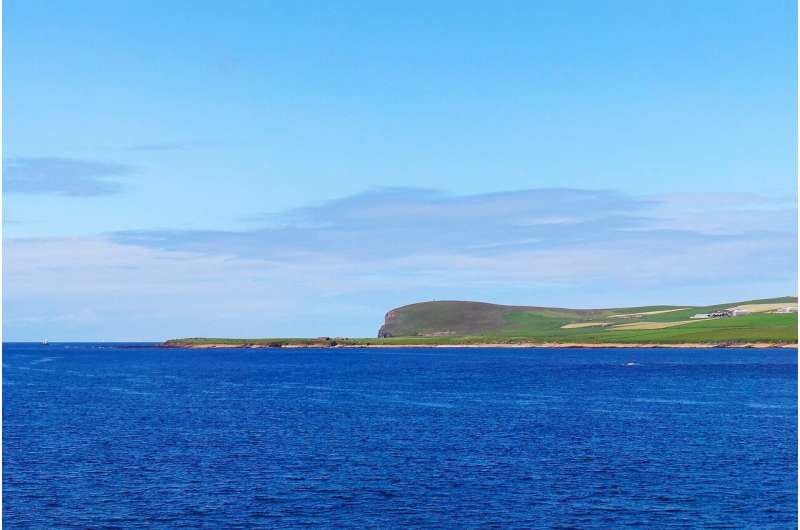Fair Isle Bird Observatory—Watching the birdwatchers

Note: This post was scheduled just as news came in that the Fair Isle Bird Observatory had been destroyed by fire on Sunday, 10th March 2019). Thankfully, nobody was injured in the fire. Plans are already afoot to rebuild, but that will take time and money.
Richard Butler of Strathclyde Business School at the University of Strathclyde, in Glasgow, UK, is worried about the impact of niche tourism, specifically birdwatching, on the well-being of a remote island and its residents. Writing in the International Journal of Tourism Anthropology, he explains how birdwatching has been the predominant form of tourism on Fair Isle, the most remote of the inhabited British islands since tourism began there in 1905.
The research analyses data collected in two surveys of the resident population that were carried out half a century apart. "The information obtained allows a longitudinal examination of the impact of tourism on the well-being of island residents and resident attitudes towards, and involvement with, tourism, and reveals that attitudes have remained positive throughout the half-century of study," Butler reports. Moreover, the numbers, location, and nature of tourists and tourism are identified as key factors in the positive relationship between residents and visitors. Tourism has benefited Fair Isle in terms of environmental, sociocultural, and economic well-being.
Fair Isle has a world-famous bird observatory and represents something of a pilgrimage site for keen birdwatchers. Aside from resident species, the position of the island halfway between Shetland and Orkney at about seven degrees south of The Arctic Circle makes it a likely place for migrants and vagrant bird species from other continents to pass through on their various travels. Even if many of the human residents departed the island there would likely still be enthusiastic ornithologists and amateur birdwatchers who would take to the see in order to reach the observatory.
"While it would be naïve to claim that the current nature of tourism is completely sustainable or perfect, it is closer to sustainability than in most tourist destinations, and overall achieves a measure of symbiosis with both the human and non-human environment with positive effects upon resident well-being," Butler concludes.
More information: Richard W. Butler et al. Niche tourism (birdwatching) and its impacts on the well-being of a remote island and its residents, International Journal of Tourism Anthropology (2019). DOI: 10.1504/IJTA.2019.098097
Provided by Inderscience



















